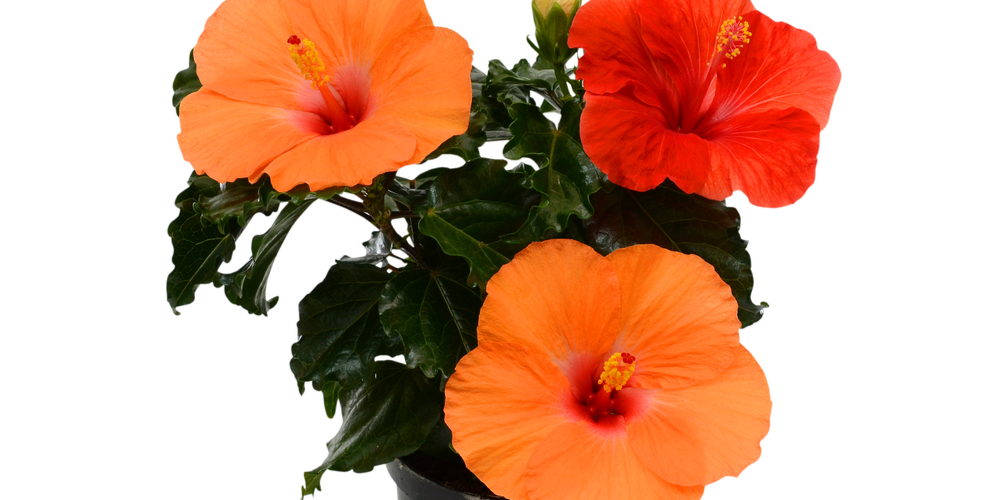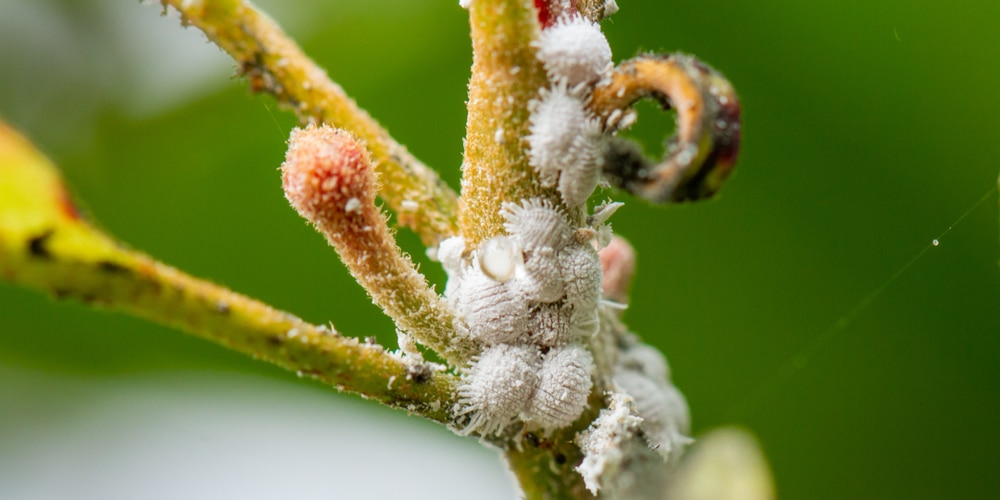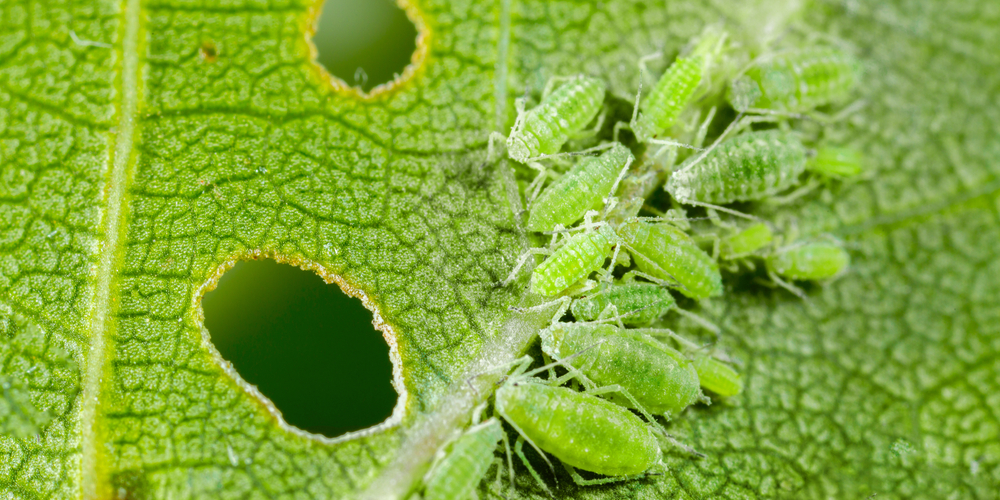Hibiscus are stunning flowering plants. You may know them for their vibrant colors and trumpet-like shape. Under the ideal conditions, these plants can help you decorate your interiors or yard with bright flowers and lush foliage. But several pests will bother your plants if you don’t take suitable precautions. If you wonder: “what is eating my hibiscus leaves?”
keep reading. In this essential guide, you’ll find everything you need to know about insects and animals that might be damaging your plant!
What’s Eating My Hibiscus Leaves: Insects that Like to Eat Hibiscus

It is not uncommon for gardeners to find their hibiscus leaves full of holes and the plant no longer healthy. Under such circumstances, the problem is most likely an insect infestation.
But before we get into the treatment you can use to get rid of the issue, let’s quickly go over which types of bugs like to eat hibiscus. In general, with these gorgeous flowering plants, you must keep an eye out for:
- Aphids – are tiny and leggy green bugs that leave a sticky substance on your plant’s leaves.
- Whiteflies – as their name suggests, these bugs are tiny flies (you can imagine the color). They prefer feeding on the underside of your plant’s leaves and sucking the plant’s juice.
- Japanese Beetles – might look beautiful but can create severe damage: if you find your hibiscus leaves full of holes, they might be causing the problem.
- Hibiscus Sawfly- they will feed on the underside of the leaves and create a lace-like pattern. You can recognize these insects by their dark bodies with an orange dot on their thorax.
- Spider mites
- Mealybugs
Don’t forget that each insect needs a different control and prevention method. Jump to the following section to learn more about how to treat your hibiscus if your plant’s leaves have become the next favorite treat of such bugs.
How to Treat Hibiscus For Insects
You can treat your hibiscus in many ways to prevent or eliminate attacks from insects. Natural remedies are the best if you don’t want to hurt other plants or cause problems to beneficial insects like bees and butterflies.
Insecticides
We rarely recommend you to use broad-spectrum insecticides to get rid of bugs: such products will kill beneficial pollinators and might cause your plant to stop growing.
Plus, they might damage other plants you might have close to your hibiscus. If you can, always prefer using natural remedies to get rid of insects.
Natural Remedies
Depending on which insect is attacking your plants, you should take different measures. Generally, you’ll have satisfactory results using insecticidal soap, neem oil, or diatomaceous earth.
You can also handpick the bugs and place them into a bucket of soapy water to kill them. Or you may try using a jet of water to drown the insects. If you have a problem with whiteflies, use sticky traps instead!
Don’t forget that such methods might take longer before being effective: be patient and reapply them as many times as necessary to get rid of the infestation. Unfortunately, if the problem is severe, you should use an insecticide.
Animals that Like to Eat Hibiscus
Besides insects, you might also have to deal with animals wanting to eat your hibiscus. The species that might attack your garden depends on where you live and on the conditions of your yard. If you suspect an animal is eating your plant, look for traces to identify if it is:
- Deer
- Groundhogs
- Turtles
These animals are the most likely to munch on hibiscus.
How to Stop Animals from Eating Hibiscus
The measures you’ll have to take to stop animals from eating your plants depend on which species are causing your issues.
If you live near a forest, deer shouldn’t be a novelty to you. And you must know that they can be destructive if you don’t take proper measures to keep them away from your property. Consider building a tall fence or putting chicken wire around your plants to prevent them from eating your hibiscus.
To protect your plants from the damage that groundhogs might cause, consider using chemical sprays or a net. If you have dogs or cats in your yard, you shouldn’t worry too much.
But if you suspect the problem is getting out of hand, install barriers to prevent groundhogs from digging around your property.
What’s Eating My Hibiscus Leaves: Conclusion
Finally, if you have turtles as pets, keep your hibiscus behind low fences to prevent these reptiles from munching on their leaves.
Related Article: 5 Hibiscus With Purple Flowers

